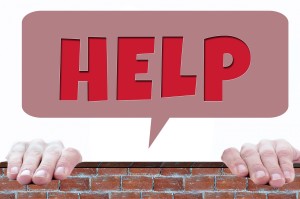 “Should anyone care that a bunch of very rich people have failed on these (for-profit) ventures?” asked Jonathan Knee in this month’s Atlantic. Failed for-profit educational investments abound. Rupert Murdoch’s one billion dollar investment in the Knowledge Universe companies is gone. Last year, Murdoch and Joel Klein, the former Chancellor of New York City schools sold what was left of Amplify to Steve Jobs’ widow, Laurene Powell Jobs. She is scaling what was to be the transformation of education down to a company specializing in middle school reading materials.
“Should anyone care that a bunch of very rich people have failed on these (for-profit) ventures?” asked Jonathan Knee in this month’s Atlantic. Failed for-profit educational investments abound. Rupert Murdoch’s one billion dollar investment in the Knowledge Universe companies is gone. Last year, Murdoch and Joel Klein, the former Chancellor of New York City schools sold what was left of Amplify to Steve Jobs’ widow, Laurene Powell Jobs. She is scaling what was to be the transformation of education down to a company specializing in middle school reading materials.
Other would be entrepreneurs have also lost their shirts. JP Morgan and Golden Sachs came up empty. Knee explains that their vision was simply too large. The educational market is regional, not national. What works in one area does not work in another. The breadth of investments also is a weakness as evidenced by the decline of K12 Inc. the Milliken distance education company. Companies are attempting to control too many different parts of the educational enterprise.
Some investors are simply ego driven. The desire to reform education based on beliefs about what is wrong and must be changed is itself a threat to wise investment. Knee gives some logical advice:
The possibility of doing good would expand exponentially if more investors and managers would shift their attention toward the question of what qualities are most important in building a successful educational franchise.
Private companies can target tools that help the instructional process rather than trying to design a process they know little about. Any educator can explain that there is no single process. Children learn in many different ways is a truism any teacher knows.
There is a “free-for-all” mentality in the education sector these days. Some for-profit companies are making money off the backs of teachers who are now fleeing the profession. Other more successful but limited reformers are frustrated with their inability to scale up expensive programs. The long term impact of an unfocused educational reform movement based solely on outcomes measured by test scores is emerging. Without enabling schools to thrive by ensuring equitable funding for low income areas and targeted instructional opportunities for at risk children, not much will change. One wonders if educational reform is a ‘something for nothing’ example of wishful thinking.
Yet as columnist Herb Caen used to say, out of the mud grows a lotus. Responsible, well managed, publically managed choice systems could evolve. Magnet schools can serve to balance diverse socio-economic areas and increase access to quality education. School programs are becoming more flexible. Instruction is enhanced not replaced by technology in classrooms. Community services are working more directly with schools. These are the goals toward which education policy is moving.








